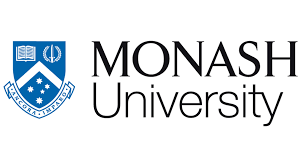Monash University: Monash improves in 2022 GRAS rankings
Monash University has had its best result in the Shanghai Global Rankings of Academic Subjects (GRAS), with 15 subjects ranking in the top 50, 36 in the top 100 – and two ranking in the top five – in the 2022 rankings table released today.
Education had the biggest improvement, rising 20 places to be ranked 15th, while Public Health rose seven places to 30th and Transportation Science and Technology increased by 11 places to 37th.
Two subjects were ranked in the global top five – with Mining and Mineral Engineering and Nursing both improving one place to 5th – while Metallurgical Engineering ranked 12th and Pharmacy and Pharmaceutical Sciences 19th.
Business Administration (35th), Economics (41st) and Finance (44th) all improved to re-enter the top 50, while Biological Sciences and Sociology entered the top 75 for the first time and Computer Science and Environmental Science and Engineering also debuted in the top 100. Energy Science & Engineering declined 11 places, however remains in the top 50 at 48th.
Monash ranked first nationally in six subjects: Chemical Engineering, Metallurgical Engineering, Pharmacy and Pharmaceutical Sciences, Economics, Education and Business Administration.
In 2021, 13 Monash subjects ranked in the top 50 while 31 were in the top 100 out of the 48 subjects assessed. The 2022 result is the most Monash subjects to appear in the top 100.
Monash University President and Vice-Chancellor Professor Margaret Gardner AC said the strong outcome and improvements in many subjects were the result of the University’s world-class performance in research and teaching.
“These outstanding rankings reflect the quality of the University’s education and research across all academic areas,” Professor Gardner said.
“The result is especially significant following two difficult years during the pandemic, and demonstrates the quality of our world-leading academics and staff.”
The 2022 GRAS contains rankings of universities in 54 subjects across Natural Sciences, Engineering, Life Sciences, Medical Sciences, and Social Sciences.
More than 1,800 universities are listed in the rankings, which use a range of objective academic indicators and third-party data to measure the performance of world universities in respective subjects, including research output (Q1), research influence (CNCI), international collaboration (IC), research quality (Top), and international academic awards (Award).
In 2022, 180 top journals identified by the Survey are used in rankings of 52 Academic Subjects. In Computer Science & Engineering, 31 selected top conferences are also taken into account this year. Only ‘Article’ is considered for this indicator. But in the subject of Pharmacy & Pharmaceutical Sciences, both “Article” and “Review” are counted because only one journal in this subject was selected as the Top journal and it mainly publishes reviews.
Thirty six prestigious international academic awards across 29 subjects were identified by the Survey.

